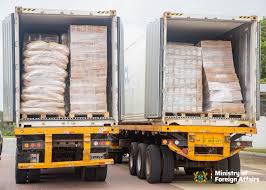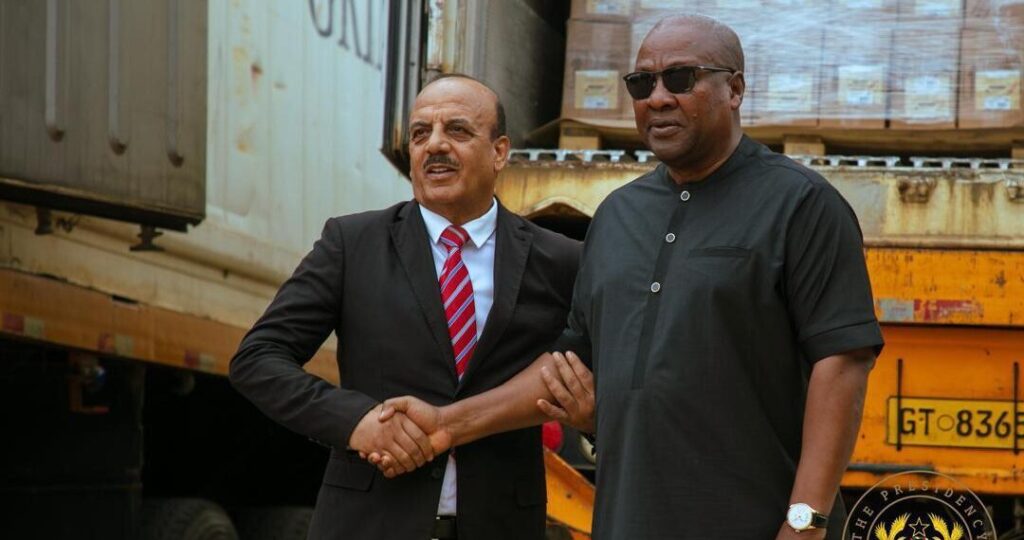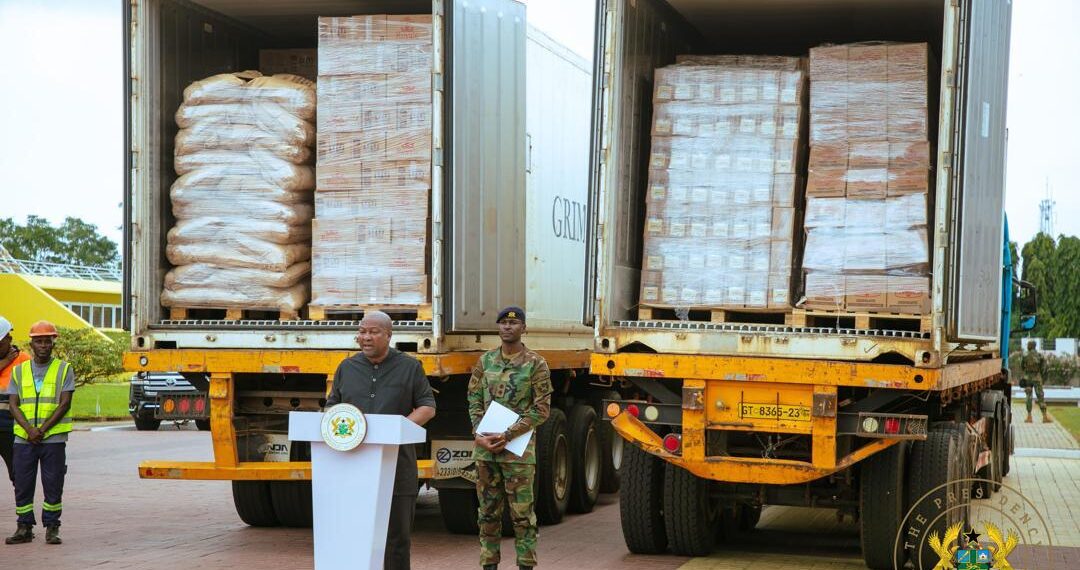Ghana’s humanitarian aid must evolve from spontaneous goodwill into a formalized strategy if the country is to strengthen its global reputation and sustain its leadership in humanitarian diplomacy, according to the IMANI Center for Policy and Education.
The policy think tank responded to Ghana’s recent 40-metric-ton donation of cocoa products to the people of Gaza by urging a long-term vision backed by legislation, economic discipline, and institutional transparency.
IMANI views Ghana’s cocoa donation as a profound humanitarian gesture, rooted in the nation’s cultural identity and constitutional commitment to global solidarity.
“While ad hoc benevolence has garnered international praise, Ghana must consider a structured approach to foreign humanitarian aid.
“An earmarked fund—capitalized each fiscal year and reserved for crises such as wars, famines, climate-driven disasters, and natural catastrophes—would project an image of Ghana as a proactive global citizen. Such a fund would signal a commitment beyond symbolic gestures, reinforcing Ghana’s reputation for principled generosity.”
IMANI Center for Policy and Education
According to IMANI, the goal is to ensure that Ghana can consistently respond to wars, climate-driven disasters, and famines without undermining its domestic fiscal obligations.
The fund would reinforce Ghana’s standing as a principled global actor—able to pair generosity with financial sustainability.
The recent donation to Gaza, made amidst a worsening crisis in health, nutrition, and shelter, reflects Ghana’s aspiration to be a beacon of peace and friendship among nations.
The cocoa products, symbolic of Ghana’s rich agricultural heritage, were well received by the Palestinian ambassador and visiting dignitaries, who emphasized the universal resonance of chocolate as a symbol of love that can transcend conflict.
Ghana has long held cocoa as a national symbol, especially celebrated during the annual Valentine’s Day observance known locally as Chocolate Day.

By repurposing this domestic tradition for international humanitarian outreach, Ghana demonstrated how soft power can be exercised through cultural products—an approach that IMANI regards as both innovative and effective.
This is not Ghana’s first major humanitarian gesture. Following the 2010 earthquake in Haiti, the country pledged $3 million in aid, building upon grassroots support from the “1 for Haiti” campaign, in which schoolchildren contributed GH₵1.00 each.
IMANI believes this model—where collective civic participation reinforces national commitments—illustrates how small-scale efforts can culminate in significant impact.
IMANI Pushes For Transparent Aid Framework
Nonetheless, IMANI Africa insisted that to maintain credibility and impact, Ghana must move from symbolic gestures to institutional structures.
The proposed humanitarian fund should be independently managed—similar to sovereign wealth models—and ring-fenced from political interference.
Oversight by a non-partisan board would ensure accountability, and annual fiscal planning should incorporate this fund as a permanent budgetary item.
“To sustain this vision without compromising domestic priorities, Ghana’s macroeconomic framework must evolve toward recurrent budget surpluses. In market economic terms, this entails enhancing revenue mobilization through broadened tax bases and improved collection efficiency; rationalizing recurrent expenditures by trimming non-essential subsidies and streamlining public payrolls; leveraging public-private partnerships to fund infrastructure and reduce off-budget borrowing; and strengthening fiscal rules to enforce discipline.”
IMANI Center for Policy and Education

These reforms, IMANI noted, would enable the government to build fiscal space for consistent international giving.
At the same time, IMANI stressed that Ghana’s gesture should not be misinterpreted as political alignment in the ongoing Israel–Hamas conflict.
The country continues to uphold its commitment to a two-state solution and previously voted alongside 128 other UN members against the unilateral recognition of Jerusalem as Israel’s capital.
This stance reflects Ghana’s long-standing policy of non-alignment and balanced diplomacy, having hosted the Palestinian Liberation Organization in Accra since 1986 while maintaining relations with Israel.
However, the logistics of delivering aid to Gaza remain complex. With Israel maintaining a tight siege and controlling major access points, the Rafah crossing on the Egyptian border has become the primary route for humanitarian shipments.
According to UN agencies, only a fraction of the roughly 600 trucks required daily manage to enter Gaza, with many delayed or stranded at checkpoints.
Accordingly, IMANI called on Ghanaian media to seek accountability from the Ministry of Foreign Affairs regarding how the cocoa shipment would be tracked and delivered to ensure it reaches its intended beneficiaries.
Beyond humanitarian aid, IMANI sees Ghana as a potential regional anchor in West Africa, particularly in times of political unrest.
Referencing recent turmoil in Togo, IMANI suggested that Ghana could take a more active mediation role within ECOWAS and through bilateral channels to promote peace and democratic values across the subregion.
This would help mitigate refugee crises and uphold regional stability.
Moreover, the think tank urged government agencies to provide regular public briefings on foreign policy activities, humanitarian disbursements, and international mediation efforts.
IMANI believes that fostering public awareness of Ghana’s global engagement will strengthen civic pride and build support for sustained foreign outreach.
Ghana’s gesture to Gaza, IMANI concluded, is more than symbolic. It exemplifies how national identity, rooted in agriculture and culture, can be used to influence global humanitarian discourse.
However, for this goodwill to translate into sustained impact, the country must invest in institutional mechanisms.

To this end, IMANI recommended that Parliament legislate the proposed Humanitarian Solidarity Fund, supported by economic reforms that generate surpluses without sacrificing local development.
The fund should be managed by an independent board empowered to respond rapidly to emergencies.
Simultaneously, the Ministry of Foreign Affairs should create dedicated task forces for high-risk regions such as West Africa, the Middle East, and the Caribbean to ensure targeted and efficient aid distribution.
Finally, IMANI emphasized that clear reporting, strong fiscal discipline, and clear public communication are essential for converting occasional generosity into a strategic pillar of Ghana’s foreign policy.
According to the policy think tank, this is essential to “maintain transparency, foster domestic buy-in, and reinforce Ghana’s standing as a principled leader in global peace and solidarity.”
With these measures, Ghana can position itself as a consistent and credible leader in international humanitarianism.
READ ALSO: UK Ties Palestine Recognition To Ceasefire Conditions



















